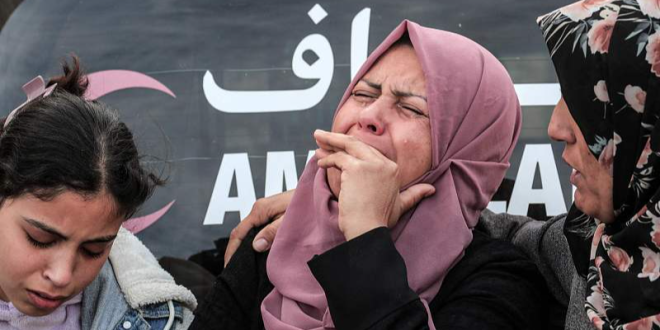Every year on March 8, countries around the world celebrate International Women’s Day. However, this year, much like previous years, women in the Gaza Strip are enduring exceedingly challenging conditions amidst Israel’s ongoing and unprecedented conflict with the Palestinians, now entering its sixth month. As women in various nations and cities mark Women’s Day with festivities, those in Gaza confront profound difficulties.
In a report released at the beginning of March, the United Nations documented and underscored the profound pain and suffering experienced by women in Gaza amid the ongoing aggression of the Zionist regime against the Gaza Strip and the genocide of Palestinians. Throughout this conflict, Palestinian women have endured unprecedented levels of death, displacement, homelessness, and significant physical, mental, and psychological injuries.
According to the report, up until its preparation and publication, approximately 9,000 Palestinian women have been killed by the occupying forces of the Zionist regime in various cities across the Gaza Strip. Additionally, reports suggest that the bodies of a significant number of Palestinian women remain trapped under rubble, indicating that the actual number of female casualties in Gaza surpasses the documented figure.
The report highlights that with the ongoing war waged by the Zionist regime in the Gaza Strip, an alarming projection suggests that 63 Palestinian women may face martyrdom every day. Such tragic losses not only shatter the lives and foundations of their families but also deprive the children of these families of their primary and essential source of support—their mothers, who serve as the cornerstone of life and family.
Published statistics reveal a dire situation, indicating that over 84% of Palestinian women in the Gaza Strip now have access to only half or even less than half of the food their families require, a stark contrast to conditions before the onset of the war.
The UN report further elaborates that 4 out of 5 Palestinian women in the Gaza Strip, accounting for 84%, acknowledged that at least one family member had to forego a meal during the week to ensure the rest of the family had enough to eat.
Moreover, the report underscores that in 95% of cases, it was mothers who sacrificed their own meals to feed their children, often foregoing at least one meal a day.
Highlighting the dire situation, the report emphasizes that the population of Gaza, numbering around 2.3 million, will confront unprecedented levels of food insecurity in the upcoming weeks, reaching the highest levels recorded globally.
According to the report, 9 out of 10 Palestinian women in the Gaza Strip, totaling 87%, encounter more challenges and difficulties in food preparation compared to men. They are compelled to scavenge under rubble or in trash cans to find and prepare food.
The plight of Palestinian women in the Gaza Strip extends beyond food insecurity. Pregnant and lactating women face significant health risks and malnutrition, jeopardizing their well-being and that of their unborn or nursing children. Additionally, elderly women encounter obstacles in accessing food distribution points due to their health conditions, exacerbating their struggles in procuring and preparing meals for themselves.
According to the United Nations Population Fund report, it is anticipated that over 5,500 Palestinian women will give birth in the Gaza Strip in March. Unfortunately, approximately 840 of these women are expected to encounter postnatal problems and complications necessitating hospitalization. However, given the disruption in hospital services in Gaza due to fuel shortages and electricity outages, the prospect of admitting these mothers to hospitals is virtually impossible. This situation poses a grave threat to their lives and well-being.
 Arab24 اخر اخبار الوطن العربي
Arab24 اخر اخبار الوطن العربي

